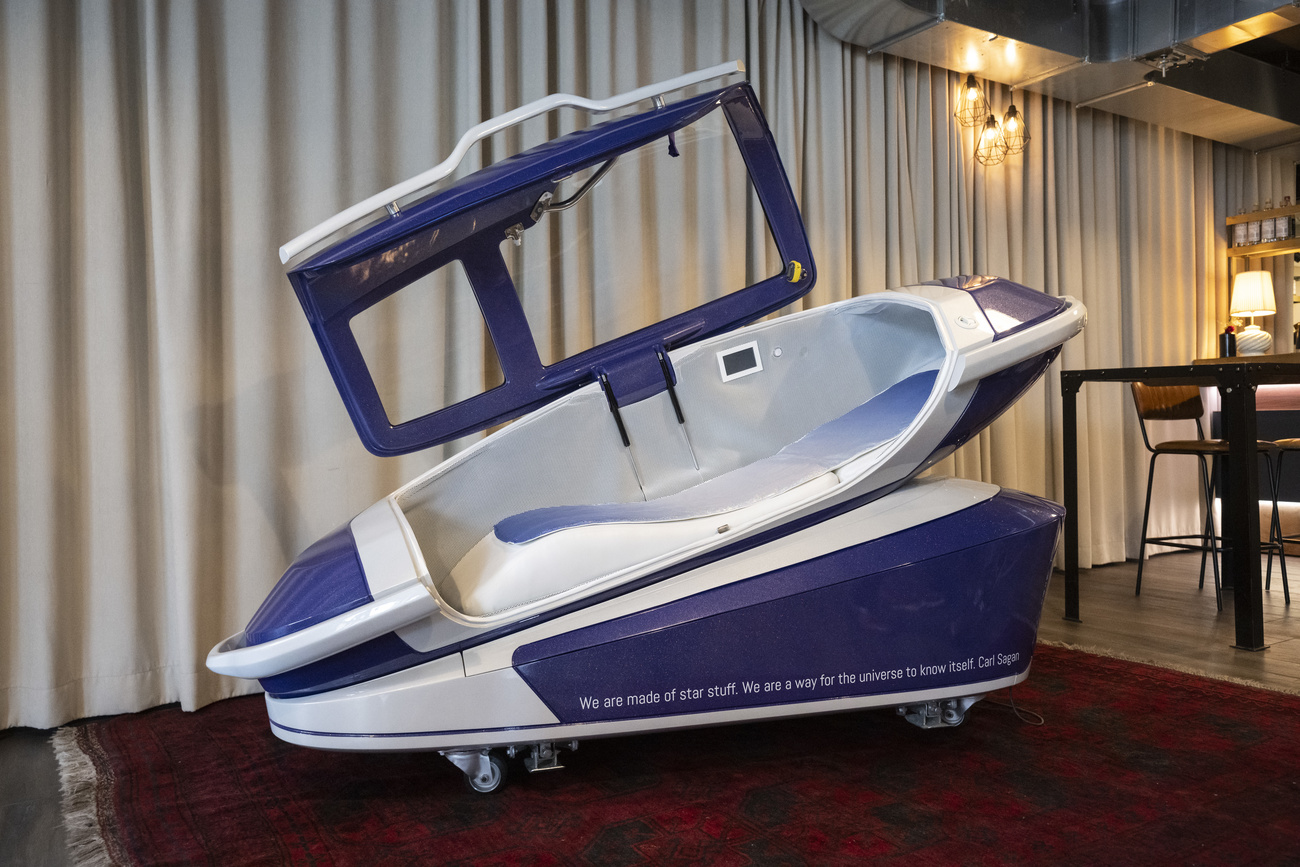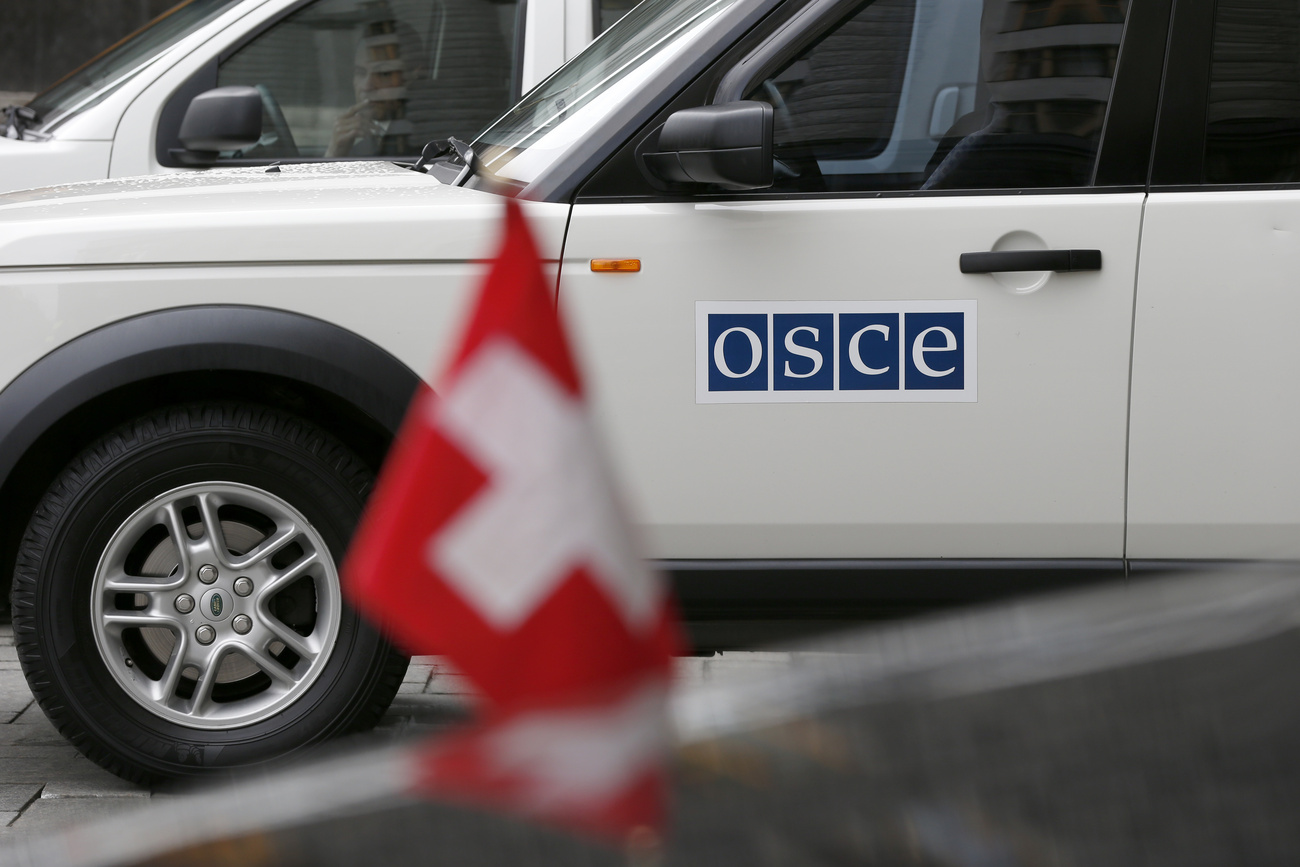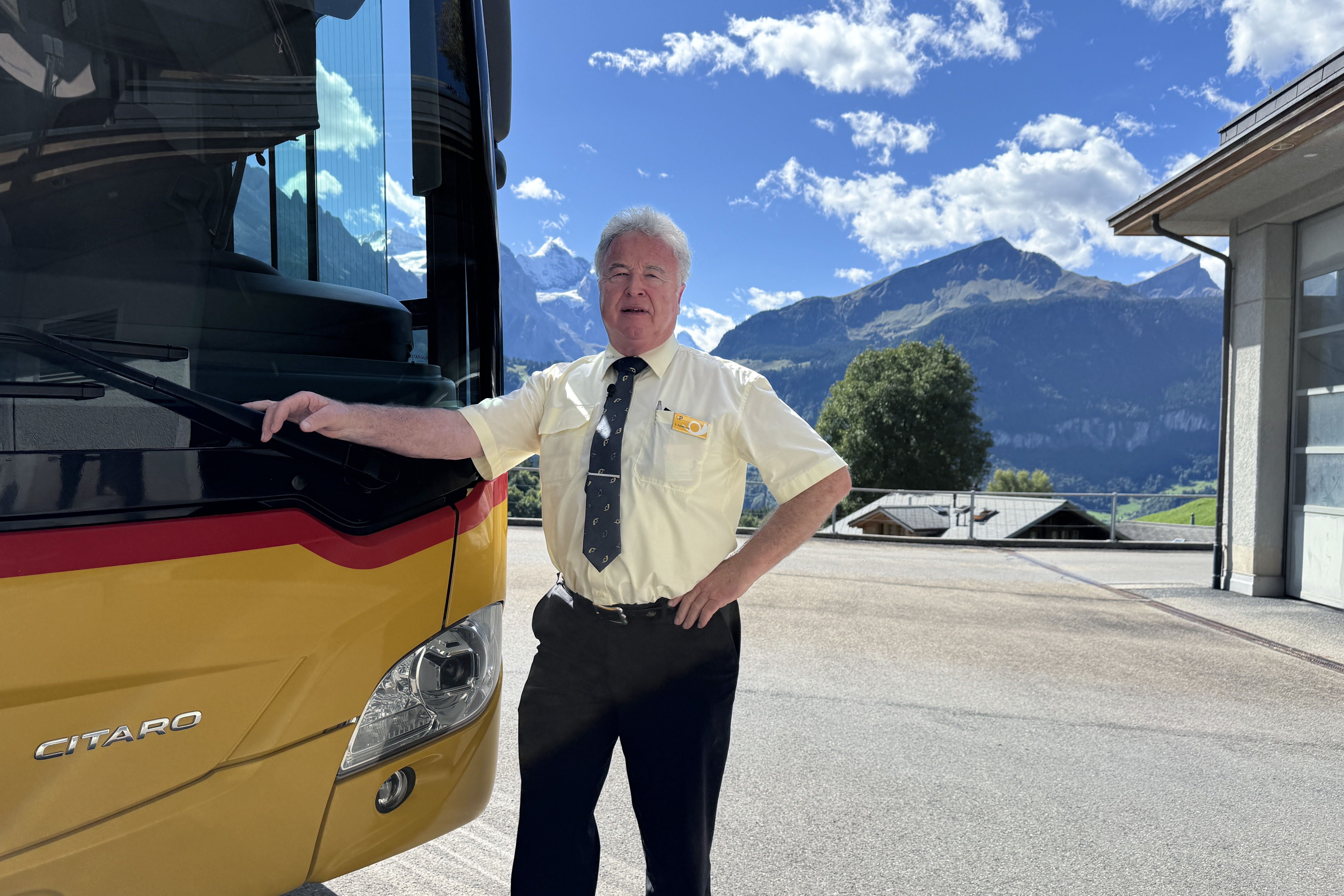
Switzerland no longer wants to foot the bill for ‘suicide tourism’

In Switzerland, all deaths through assisted suicide must be followed by a medical and legal investigation. This entails considerable costs for the state. Canton Solothurn has now found a way to pass this bill on to people who come to Switzerland from abroad to die. They must also be filmed while committing the final act.
The camera image shows a person lying on a bed. They reach out to a drip and open a valve. At once, the lethal dose of sodium pentobarbital starts flowing into their blood.
Such videos are at the core of an agreement, unprecedented in Switzerland, that was signed late last year between canton Solothurn and the right-to-die organisation Pegasos. Under the new arrangement, if Pegasos provides video evidence that the suicide was carried out by the person themselves, as well as additional information, then the authorities do not send in a legal and medical team to investigate the death.

More
Newsletters
Thus, instead of the police, medical examiner and public prosecutor all hastening to the scene of the death, the body is transferred to nearby canton Basel City for examination by the forensic medicine institute there.
This reduces the costs of the post-mortem investigation to between CHF1,000 ($1,110) and CHF2,000 per case. What is more, the bill is paid by the right-to-die organisation, and therefore ultimately by the person who wanted to die.
According to Pegasos, the costs are subsumed in the total price of assisted suicide, which amounts to around CHF10,000 per person, be it with Pegasos or other, similar organisations in Switzerland.
Families can now grieve in peace
Thanks to the agreement, which came into effect in December, canton Solothurn can cut some high costs. Previously, each assisted suicide by a person resident abroad cost the canton around CHF3,000.
“We get a better result in terms of evidence in this way. The new arrangement also eases the burden on the public purse and on human resources,” says Solothurn’s chief prosecutor, Hansjürg Brodbeck. The authorities, meanwhile, reserve the right to carry out random checks.
According to Pegasos, the agreement above all helps to ensure a more dignified setting for the relatives. The farewell and grieving process is now no longer interrupted by the appearance of the criminal investigation team, the organisation wrote in response to a request. “This disturbed the family’s privacy in an intimate moment. Family and friends had to wait until the official procedures were completed.”
Numbers predicted to double
The Solothurn model has attracted a lot of attention in Switzerland. This is because other cantons are also saddled with the investigation costs and find their human resources stretched.
Lately, over 1,700 Swiss residents a year have committed assisted suicide. In addition, over 500 people from abroad travel to Switzerland for this purpose each year. And demand is increasing: observers expect the number of assisted suicides in Switzerland to double by 2035.
Various cantons have tried to find ways to avoid the costs of assisted suicides in the past. These have all failed, however, because the obligation to investigate is enshrined in the Swiss Criminal Procedure CodeExternal link, which lays down, in article 253, that a medical examination of the body must be carried out “if there are indications that a death did not occur naturally”. And as assisted suicide is considered an unnatural death, the usual interpretation is that it must be investigated ex officio.
Some cantons have nonetheless managed to reduce their investigation costs, often in consultation with the right-to-die organisations. But the Solothurn model is unique because of the voluntary coverage of the costs by Pegasos.
A different solution is needed
Many organisations, however, do not see this as a real solution, as it makes supporting people’s end-of-life wishes more expensive for them.
Exit Deutsche Schweiz, the country’s largest assisted suicide organisation, is therefore calling for assisted suicide to be treated as a special category of unnatural death.
The president of the organisation Lifecircle, Erika Preisig, agrees. “It is time to stop criminalising this peaceful way of dying with police investigations,” she says. “The costs thus incurred are unnecessary.”
Lifecircle also films those who want to die while they commit suicide. This makes the cause of death absolutely clear, Preisig says. “Our aim is that the authorities accept another way of dying.”
‘Natural death’ in Belgium
After Switzerland, Belgium is the country that attracts the second-highest number of non-residents wishing to die. Many of them come from France. According to the Belgian Law on EuthanasiaExternal link, adopted in 2002, assisted suicide is a natural death.
“This was mainly done with regard to insurance contracts,” explains Jacqueline Herremans, lawyer and president of the Association for the Right to Die in Dignity Belgium. “It is actually what the doctor has to write on the death certificate.”
In Belgium, unlike in Switzerland, assisted suicide is generally active, meaning that a doctor administers the lethal infusion. An ethics committee elected by parliament is responsible for oversight. It comprises eight doctors, four lawyers and four people with demonstrable experience in dealing with terminally ill people.
For the past two years, over 500 people a year have travelled from abroad to Switzerland to end their lives with the help of a right-to-die organisation. In Belgium, the number was around 100. No exact figures are available, however, as the place of residence of the deceased is not recorded statistically.
In principle, both countries allow assisted suicide for non-residents – unlike the Netherlands and Spain, for instance. The process is different, however. In Belgium, active euthanasia is legal, meaning that the lethal dose of sodium pentobarbital is generally administered by a doctor. In Switzerland, those wishing to die must carry out the act themselves.
In both countries a doctor must be involved. In Belgium, two doctors must be consulted, and even a third one if the patient’s death is not imminent. In Switzerland, the decision-making capacity of the person wishing to die must be assessed.
Assisted suicide is, in principle, also available in Switzerland for non-residents with psychiatric illnesses, and even without a medical prognosis. This is not the case in Belgium, as it would make the requisite in-depth discussions with the doctors more difficult.
In Switzerland, assisted suicide is organised by private right-to-die organisations. Some of them do not accept requests from people living abroad. Dignitas and Pegasos are the two organisations that help the highest number of non-residents to end their lives. In Belgium, euthanasia counselling centres refer doctors who provide assisted suicide, but not all of them accept requests from abroad.
It is a streamlined process: the committee checks whether the preconditions have been met. In case of suspicion, it forwards the file to the public prosecutor, which may also investigate on its own initiative or on receipt of a complaint.
Since the adoption of the euthanasia law in 2002, there has been only one prosecution in Belgium, Herremans says. The result: “The three doctors who were summoned before the jury court in Ghent were acquitted.”
Swiss public prosecutors take defensive approach
In Switzerland, the major assisted-suicide organisations are all against the introduction of a law on the issue. They believe that the minimalist regulation in the Swiss Criminal Code, together with the case law of the Federal Court, is sufficient. In Switzerland, assisted suicideExternal link is not a criminal offence unless it is carried out for selfish motives.
Both the organisation Exit and Preisig of Lifecircle believe that the forensic medical examination could be dispensed with on the basis of current legislation.
This is because the Code of Criminal Procedure only requires a forensic examination “if there are indications that a death did not occur naturally, and in particular indications of an offence”, or if the identity of the corpse is unknown. Neither of these is the case with assisted suicide, they argue.
A legal opinion drawn up for Exit concludes that, apart from a medical examination of the body and verification of the identity of the deceased, no further investigations are necessary. Swiss public prosecutors, on the other hand, continue to interpret the law defensively.

More
After the first ‘Sarco pod’ death, will Switzerland introduce stricter rules for assisted suicide?
Unfortunately, the only option left, according to Preisig, is probably to clarify the obligations of the public prosecutor – and other open questions related to assisted suicide – by “political means”. But Switzerland currently lacks the courage to do so, she says.
For the time being then, the Solothurn model will remain in place. It is unclear whether it will set a precedent. When questioned, the public prosecutors in the cantons with the highest numbers of assisted suicides were non-committal, stating that they did not comment on measures taken by other authorities. And there is no government agency in Switzerland that coordinates assisted suicide nationwide.
What do you think? Join the debate:
Edited by Balz Rigendinger. Adapted from German by Julia Bassam/gw.

In compliance with the JTI standards
More: SWI swissinfo.ch certified by the Journalism Trust Initiative





























You can find an overview of ongoing debates with our journalists here . Please join us!
If you want to start a conversation about a topic raised in this article or want to report factual errors, email us at english@swissinfo.ch.